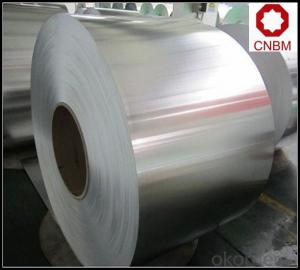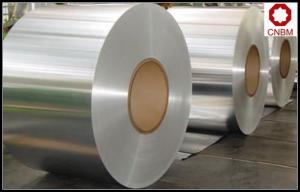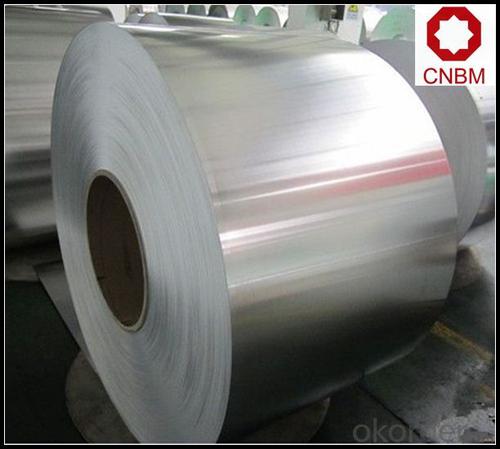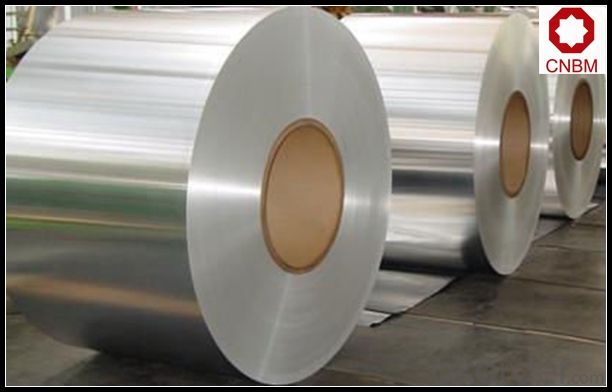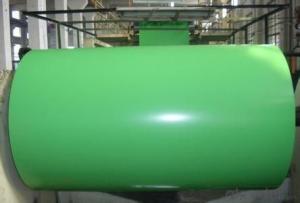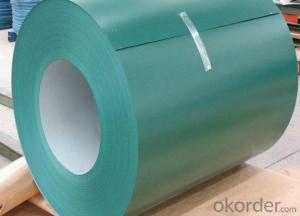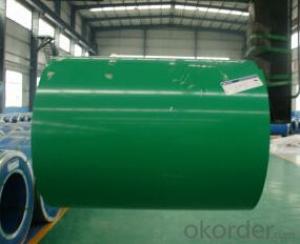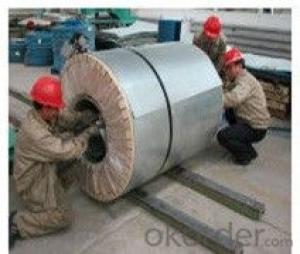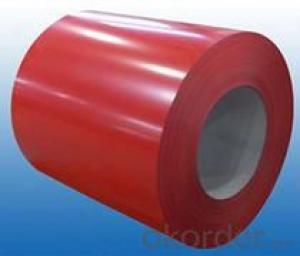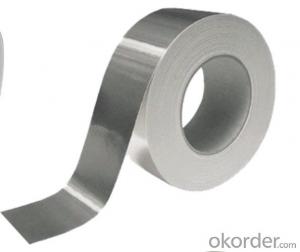Hot Rolled Prepainted Aluminum Coil 3 Series
- Loading Port:
- Shanghai
- Payment Terms:
- TT OR LC
- Min Order Qty:
- 5 m.t.
- Supply Capability:
- 10000 m.t./month
OKorder Service Pledge
OKorder Financial Service
You Might Also Like
Specification
1. Specification of Hot Rolled Prepainted Aluminum Coil 3 Series
1) Alloy | 1050, 1060,1100, 3003 3004 3105 3A21 5005 5052 etc |
2) Temper | O/H12/H14/H1/H18/H32/H34/H36/H38//H111/H112/H116/H321/T6/T651/T3/T351 etc |
3) Thickness | 0.1mm to 6mm |
4) Width | 20mm to 3300mm |
5) Coil weight | 100kgs to 6 tons depends on actual requirement |
6) Core material | Aluminum or paper |
7) Coil Inner diameter | 75mm, 150mm, 200mm, 300mm, 405mm, 505mm or as required |
8) Protective film can be added
2. Application of Hot Rolled Prepainted Aluminum Coil 3 Series
(1).Interior: wall cladding, ceilings, bathrooms, kitchens and balconies, shutters, doors...
(2).Exterior: wall cladding, facades, roofing, canopies, tunnels,column covers , renovations...
(3).Advertisement: display platforms, signboards, fascia, shop fronts...
3. Feature of Hot Rolled Prepainted Aluminum Coil 3 Series
*Such coil is specially designed to replace aluminum ingot, due to the high export tax of aluminum ingot, the coil has better price than ingot.
*This type of coil can fit customer's remelting furnace just like ingot, no need to make any change to the production line that was previously used for ingot. The standard coil size and weight is very suitable for the feed gate of furnace.
*This type of coil causes less material wastage than ingot when remelted.
*Our coil is made directly from ore, no need to go though the ingot making process, quality is much better than other suppliers who use ingot scrap to make coil.
Be free from Oil Stain, Dent, Inclusion, Scratches, Stain, Oxide Dicoloration, Breaks, Corrosion, Roll Marks, Dirt Streaks and other defect which will interfere with use
4. Certificate:
SGS and ROHS(if client request, paid by client), MTC(plant provided), Certificate of Origin(FORM A, FORM E, CO), Bureau Veritas and SGS (if client request, paid by client), CIQS certificate
5. Image of Hot Rolled Prepainted Aluminum Coil 3 Series
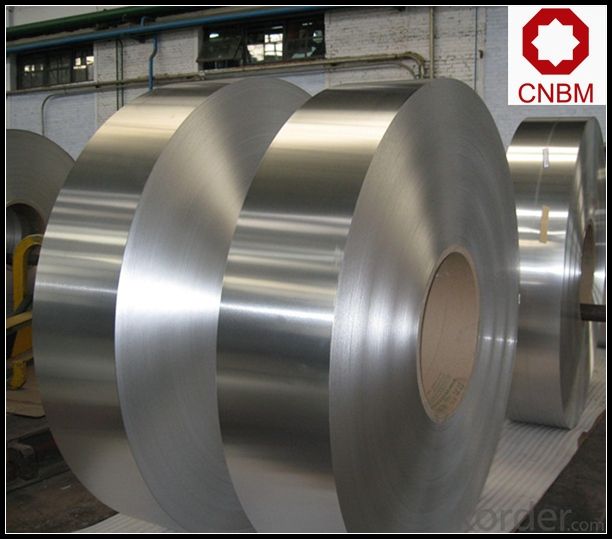
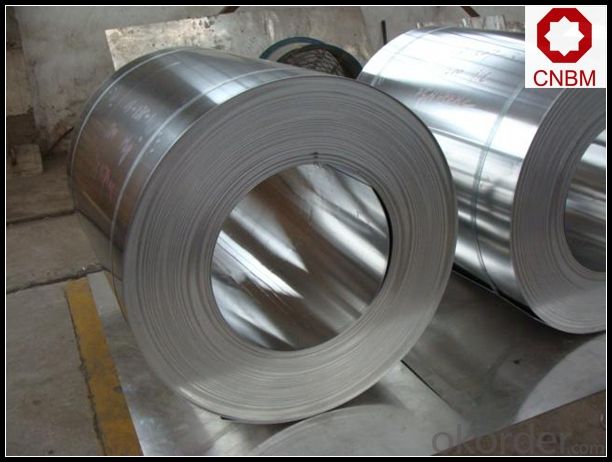
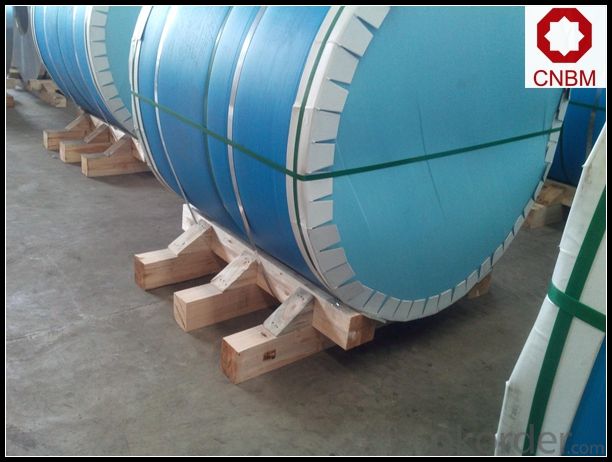
6. Package and shipping of Hot Rolled Prepainted Aluminum Coil 3 Series
eye to wall
eye to the wall
with wood pallet (wooded case also available)
7. FAQ
1) What is the delivery time?
Dpends on actual order, around 20 to 35 days
2)What is the QC system:
We have QC staff of 20 persons and advanced equipment, each production is with MTC traced from Aluminum ingot lot.
3) What market do you mainly sell to?
Australia, America, Asia, Middle East, Western Europe, Africa etc
- Q: Can aluminum coils be used in the production of heat exchanger fins?
- Yes, aluminum coils can be used in the production of heat exchanger fins.
- Q: Can aluminum coils be used in electrical transformers?
- Yes, aluminum coils can be used in electrical transformers. While copper is the most commonly used material for transformer windings, aluminum has also been increasingly used due to its cost-effectiveness and lighter weight. Aluminum coils are typically used in distribution transformers, which are smaller in size and operate at lower voltages. However, there are certain considerations to bear in mind when using aluminum coils in transformers. Aluminum has a lower conductivity than copper, so the aluminum coils need to have larger cross-sectional areas to compensate for this. Additionally, aluminum has a higher coefficient of thermal expansion than copper, so proper precautions must be taken to account for the differential thermal expansion between the aluminum windings and other transformer components. Overall, aluminum coils can be a suitable choice for specific transformer applications, but the design and manufacturing process must be carefully executed to ensure optimal performance and reliability.
- Q: What are the typical delivery options for aluminum coils?
- The typical delivery options for aluminum coils vary depending on the supplier and the specific requirements of the customer. However, there are a few common delivery options that are often available. 1. Direct delivery: Many aluminum coil suppliers offer direct delivery to the customer's location. This can be especially convenient for customers who require large quantities of coils or have limited transportation capabilities. The supplier will typically arrange for a truck or shipping container to transport the coils directly to the customer's facility. 2. Pickup from supplier: Customers also have the option to arrange for their own transportation and pick up the aluminum coils directly from the supplier's location. This option is often chosen by customers who are located in close proximity to the supplier or have their own transportation logistics in place. 3. Third-party logistics (3PL): Some suppliers work with third-party logistics companies to handle the delivery of aluminum coils. These companies specialize in transportation and can provide efficient and cost-effective delivery services. This option is commonly used by customers who prefer to outsource their logistics operations. 4. International shipping: For customers who require aluminum coils to be delivered internationally, shipping options such as air freight or ocean freight are available. These methods may incur additional costs and longer delivery times due to customs clearance and transportation logistics. It is important to note that the specific delivery options may vary depending on the supplier's capabilities and the customer's location. Therefore, it is recommended to discuss delivery options directly with the supplier to ensure the most suitable and cost-effective method is chosen.
- Q: Related technical standards of aluminium coil
- GB/T 1196-2002 remelting aluminium ingotTechnical specification for dustproof and anti gas of GB/T 17397-1998 aluminium electrolysis productionFixed capacitors for use in GB/T 17208-1998 electronic equipment - Part eighteenth: Blank detail specification - non solid electrolyte sheet type aluminium fixed capacitor level E
- Q: i need ONE advantage of each, and a final reason why aluminium is used?
- Copper does conduct slightly better than aluminum, but aluminum corrodes over time and the oxidized surface has very high resistance. Copper also oxidizes but is not as high a resistance. The high resistance, when in contact with another conductor, like a junction inside a box, will create heat. Those high resistance junctions create so much heat that over time a fire hazard develops. Hence, National Electrical Code disallowed the use of aluminum for safety reasons.
- Q: How do aluminum coils contribute to lightweight construction?
- Aluminum coils contribute to lightweight construction by providing a material that is significantly lighter than other metals such as steel. This allows for the reduction of overall weight in structures, vehicles, and appliances, leading to increased fuel efficiency, improved performance, and lower environmental impact. Additionally, aluminum coils have high strength-to-weight ratio, making them ideal for applications where strength is required without compromising on weight.
- Q: Is it possible to use aluminum coils in the construction of a solar charger or battery pack?
- <p>While aluminum coils can be used in various electrical applications due to their conductivity, they are not typically used in solar chargers or battery packs. Solar chargers and battery packs usually require materials with higher conductivity and specific properties for efficient energy transfer and storage. Copper is more commonly used for wiring in these devices due to its superior conductivity compared to aluminum. Aluminum may not provide the necessary efficiency and could lead to energy loss. For the best performance in solar chargers and battery packs, it's recommended to use materials specifically designed for these applications, such as high-quality copper wiring and appropriate battery cells.</p>
- Q: What is the cost of aluminum coils compared to other metals?
- The cost of aluminum coils compared to other metals can vary depending on various factors such as market demand, availability, and current economic conditions. Generally, aluminum is considered to be more affordable compared to other metals like copper or stainless steel. Aluminum is widely used in various industries due to its lightweight, corrosion resistance, and excellent thermal conductivity. These qualities make it a preferred choice for applications such as construction, automotive, aerospace, and electrical industries. Compared to copper, aluminum typically has a lower cost per pound. However, it should be noted that copper is known for its superior electrical conductivity and is often preferred in specific applications where electrical performance is critical. Stainless steel, on the other hand, is generally more expensive than aluminum. Stainless steel offers excellent corrosion resistance and durability, making it suitable for applications requiring high strength and resistance to harsh environments. Overall, when considering the cost of aluminum coils compared to other metals, aluminum is often a more cost-effective option. However, it is essential to evaluate the specific requirements and performance characteristics required for a particular application to determine the most suitable metal choice.
- Q: What are the different types of surface defect classifications for aluminum coils?
- There are several types of surface defect classifications for aluminum coils. These classifications are used to categorize and identify various imperfections that can occur on the surface of aluminum coils during the manufacturing process. Some common types of surface defects include: 1. Scratches: These are linear marks or grooves on the surface of the aluminum coil. Scratches can vary in depth and length and are typically caused by mechanical friction or handling during production or transportation. 2. Streaks: Streaks are discolorations or lines that appear on the surface of the coil. They are often caused by uneven coating or impurities in the aluminum material. 3. Dents: Dents are depressions or distortions on the surface of the coil. They can be caused by mishandling, impact, or improper storage of the coils. 4. Pitting: Pitting refers to the presence of small, localized holes or craters on the coil surface. It is often caused by the corrosion of the aluminum, exposure to aggressive environments, or improper surface treatment. 5. Surface contamination: This classification includes any foreign substances or contaminants that are present on the surface of the aluminum coil. Examples of surface contaminants can include oil, dirt, dust, or residues from the manufacturing process. 6. Oxide films: Oxide films are thin layers of aluminum oxide that can form on the surface of the coil. These films can vary in thickness and appearance and are often a result of exposure to air or moisture. It is important to classify and identify these surface defects accurately as they can affect the quality and performance of the aluminum coils. Manufacturers and customers use these classifications to determine the acceptability of the coils and make decisions regarding their usability and potential treatment or repair.
- Q: What are the common international standards and certifications for aluminum coils?
- There are several common international standards and certifications for aluminum coils that ensure their quality and compliance with industry requirements. These standards and certifications include: 1. International Organization for Standardization (ISO): ISO 9001 is a globally recognized standard for quality management systems. It ensures that the manufacturer has implemented effective quality control processes throughout their production and supply chain, resulting in consistent and reliable aluminum coils. 2. American Society for Testing and Materials (ASTM): ASTM International develops and publishes technical standards for various materials, including aluminum coils. ASTM B209 is a commonly referenced standard for aluminum and aluminum-alloy sheet and plate, which covers the general requirements for flat-rolled aluminum products. 3. European Norms (EN): EN 485 is a European standard that specifies the mechanical properties, dimensions, and tolerances of aluminum and aluminum alloys. It ensures that the aluminum coils manufactured in Europe comply with the specified quality and performance requirements. 4. Japan Industrial Standards (JIS): JIS H 4000 is a set of standards developed by the Japanese Industrial Standards Committee for aluminum and aluminum alloys. It covers the chemical composition, mechanical properties, and dimensions of aluminum coils, ensuring their suitability for various applications. 5. Aluminium Stewardship Initiative (ASI) Certification: ASI is a global, multi-stakeholder initiative that promotes responsible production, sourcing, and stewardship of aluminum. The ASI Certification ensures that aluminum coil manufacturers follow strict environmental, social, and governance standards, including responsible sourcing of raw materials and sustainable production practices. 6. United States Aluminum Association Certification: The Aluminum Association is a trade association in the United States that represents the aluminum industry. Their certification programs, such as the Aluminum Transportation Group (ATG) Certification, ensure that aluminum coils meet the industry's specific requirements for automotive, aerospace, and other transportation applications. These standards and certifications provide assurance to customers that the aluminum coils they are purchasing meet the necessary quality, performance, and sustainability standards. It is important for manufacturers and suppliers to adhere to these international standards to gain credibility and maintain the trust of their customers in the global market.
Send your message to us
Hot Rolled Prepainted Aluminum Coil 3 Series
- Loading Port:
- Shanghai
- Payment Terms:
- TT OR LC
- Min Order Qty:
- 5 m.t.
- Supply Capability:
- 10000 m.t./month
OKorder Service Pledge
OKorder Financial Service
Similar products
Hot products
Hot Searches
Related keywords
